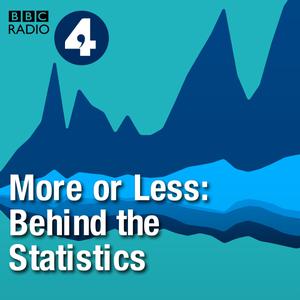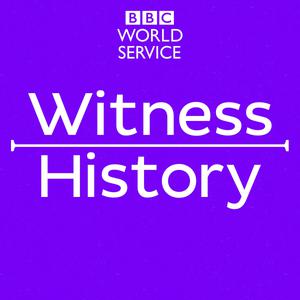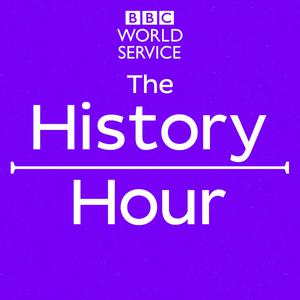
Sporting Witness
BBC
The inside and personal story of the key moments from sporting history
- 9 minutes 16 secondsGermany’s first black national footballer
In March 1975, West Germany – the newly crowned world champions – came to London’s Wembley Stadium for a friendly against England.
Among the German squad was a 28-year-old striker who’d already attracted a lot of attention from the British media: not because he’d been hailed as the new Gerd Müller, Germany’s legendary goal scorer, but because of the colour of his skin.
Erwin Kostedde was the son of a white German mother and a black US soldier, and he had been on the receiving end of racism for most of his life – even during what he considered to be the best years of his career, at Kickers Offenbach.
He talks to Kristine Pommert about how racist taunts from supporters and even fellow players affected his game – and how he feels about being a trailblazer for young black players today.
A CTVC production for the BBC World Service.
Eye-witness accounts brought to life by archive and testimony. Sporting Witness is for those fascinated by sporting history. We take you to the events that have shaped the sports world through the eyes of the people who were there. For nine minutes, you become a fan in the stands as we take you back in time to examine memorable victories and agonising defeats from all over the world. You’ll hear from people who have achieved sporting immortality, or those who were there as incredible sporting moments unfolded.
Recent episodes explore the forgotten football Women’s World Cup, the plasterer who fought a boxing legend, international football’s biggest ever beating and the man who swam the Amazon river. We look at the lives of some of the most famous F1 drivers, tennis players and athletes as well as people who’ve had ground-breaking impact in their chosen sporting field, including: the most decorated Paralympian, the woman who was the number 1 squash player in the world for nine years, and the first figure skater to wear a hijab. You can learn all about fascinating and surprising stories, such as the tennis player who escaped the Nazis, how a man finally beat a horse in a race, and how the FIFA computer game was created.
21 December 2024, 10:00 am - 10 minutes 9 secondsFighting Norway's boxing ban
In 2014, fighter Cecilia Braekhus helped end Norway’s 33 year ban on professional boxing, thanks to a parliamentary points decision.
The so-called ‘knockout’ law had been in place since 1981 because the Norwegian parliament thought professional fights - lasting up to 12 rounds and with no helmets - were too dangerous.
It meant that Cecilia and other Norwegian boxers had never been able to fight professionally in their home country. They also had to train abroad.
Despite the ban, in September 2014, Cecilia became the first undisputed world champion in women’s boxing after unifying the welterweight titles.
She then turned her attention to securing another victory, and three months later, the Norwegian parliament voted 54 to 48 to lift the ban on boxing.
Cecilia Braekhus spoke to Jane Wilkinson about being able to fight professionally in Norway for the first time.
Eye-witness accounts brought to life by archive and testimony. Sporting Witness is for those fascinated by sporting history. We take you to the events that have shaped the sports world through the eyes of the people who were there. For nine minutes, you become a fan in the stands as we take you back in time to examine memorable victories and agonising defeats from all over the world. You’ll hear from people who have achieved sporting immortality, or those who were there as incredible sporting moments unfolded.
Recent episodes explore the forgotten football Women’s World Cup, the plasterer who fought a boxing legend, international football’s biggest ever beating and the man who swam the Amazon river. We look at the lives of some of the most famous F1 drivers, tennis players and athletes as well as people who’ve had ground-breaking impact in their chosen sporting field, including: the most decorated Paralympian, the woman who was the number 1 squash player in the world for nine years, and the first figure skater to wear a hijab. You can learn all about fascinating and surprising stories, such as the tennis player who escaped the Nazis, how a man finally beat a horse in a race, and how the FIFA computer game was created.
(Photo: Cecilia Braekhus at the International Boxing Event, Finland. 2009 Credit: Jussi Nukari/AFP via Getty Images)
14 December 2024, 6:00 am - 8 minutes 58 secondsPuerto Rico upsets the USA in Olympic basketball
In 2004, the Caribbean island of Puerto Rico went into their opening basketball game of the Athens Olympics as massive underdogs against the USA.
The Puerto Rican side had lost five consecutive games by double digit points to the USA's star-studded squad in qualifiers and warm ups.
But the unfancied team defied the odds with the performance of a lifetime, led by their own inspirational star, Carlos Arroyo. Robert Nicholson hears his story in this Whistledown production.
Eye-witness accounts brought to life by archive and testimony. Sporting Witness is for those fascinated by sporting history. We take you to the events that have shaped the sports world through the eyes of the people who were there. For nine minutes, you become a fan in the stands as we take you back in time to examine memorable victories and agonising defeats from all over the world. You’ll hear from people who have achieved sporting immortality, or those who were there as incredible sporting moments unfolded.
Recent episodes explore the forgotten football Women’s World Cup, the plasterer who fought a boxing legend, international football’s biggest ever beating and the man who swam the Amazon river. We look at the lives of some of the most famous F1 drivers, tennis players and athletes as well as people who’ve had ground-breaking impact in their chosen sporting field, including: the most decorated Paralympian, the woman who was the number 1 squash player in the world for nine years, and the first figure skater to wear a hijab. You can learn all about fascinating and surprising stories, such as the tennis player who escaped the Nazis, how a man finally beat a horse in a race, and how the FIFA computer game was created.
(Photo: Carlos Arroyo of Puerto Rico. Credit: Getty Images)
7 December 2024, 10:00 am - 9 minutes 59 secondsMagnus Carlsen: 'Mozart of chess'
The Norwegian chess grandmaster, Magnus Carlsen, has been known as the "Mozart of chess" since childhood. In 2014, he became the first player ever to win all three world chess titles in one year, achieving the highest official rating of any player in history. He speaks to Ben Henderson.
Eye-witness accounts brought to life by archive and testimony. Sporting Witness is for those fascinated by sporting history. We take you to the events that have shaped the sports world through the eyes of the people who were there. For nine minutes, you become a fan in the stands as we take you back in time to examine memorable victories and agonising defeats from all over the world. You’ll hear from people who have achieved sporting immortality, or those who were there as incredible sporting moments unfolded.
Recent episodes explore the forgotten football Women’s World Cup, the plasterer who fought a boxing legend, international football’s biggest ever beating and the man who swam the Amazon river. We look at the lives of some of the most famous F1 drivers, tennis players and athletes as well as people who’ve had ground-breaking impact in their chosen sporting field, including: the most decorated Paralympian, the woman who was the number 1 squash player in the world for nine years, and the first figure skater to wear a hijab. You can learn all about fascinating and surprising stories, such as the tennis player who escaped the Nazis, how a man finally beat a horse in a race, and how the FIFA computer game was created.
(Photo: Magnus Carlsen wins the World Chess Championship in 2014. Credit: Sasha Mordovets/Getty Images)
(Commentary credit: Fide World Championship 2014)
30 November 2024, 9:00 am - 9 minutesThe Unified Team at the 1992 Olympics
In 1992 history was made at the Olympics in Barcelona as 12 former Soviet republics competed for the first and only time as the Unified Team.
It was the final time the countries who had been part of the USSR took part in sporting events as the same team. And it marked a revolution for athletes who had been part of the Soviet athletics machine like World Champion Ukrainian fencer Sergei Golubitsky.
He speaks to Ashley Byrne about the mixed feelings he and other athletes had as their countries turned their back on communism and gradually embraced a new way of doing elite sport. A Made in Manchester production.
Eye-witness accounts brought to life by archive and testimony. Sporting Witness is for those fascinated by sporting history. We take you to the events that have shaped the sports world through the eyes of the people who were there. For nine minutes, you become a fan in the stands as we take you back in time to examine memorable victories and agonising defeats from all over the world. You’ll hear from people who have achieved sporting immortality, or those who were there as incredible sporting moments unfolded.
Recent episodes explore the forgotten football Women’s World Cup, the plasterer who fought a boxing legend, international football’s biggest ever beating and the man who swam the Amazon river. We look at the lives of some of the most famous F1 drivers, tennis players and athletes as well as people who’ve had ground-breaking impact in their chosen sporting field, including: the most decorated Paralympian, the woman who was the number 1 squash player in the world for nine years, and the first figure skater to wear a hijab. You can learn all about fascinating and surprising stories, such as the tennis player who escaped the Nazis, how a man finally beat a horse in a race, and how the FIFA computer game was created.
(Photo: Fencers fencing. Credit: Getty Images)
23 November 2024, 10:00 am - 9 minutes 54 secondsBattle of the Surfaces
Rafael Nadal and Roger Federer were the undisputed King of Clay and King of Grass respectively. But who would win on a hybrid court made up of half grass and half clay?
That was the idea from Argentinean creative entrepreneur and tennis fan Pablo del Campo, who wanted to stage the exhibition match which would be watched by millions.
As Rafael Nadal retires from professional tennis, Pablo tells Uma Doraiswamy how he made the iconic court possible in May 2007 in a bid to find out who would win the Battle of the Surfaces.
Eye-witness accounts brought to life by archive and testimony. Sporting Witness is for those fascinated by sporting history. We take you to the events that have shaped the sports world through the eyes of the people who were there. For nine minutes, you become a fan in the stands as we take you back in time to examine memorable victories and agonising defeats from all over the world. You’ll hear from people who have achieved sporting immortality, or those who were there as incredible sporting moments unfolded.
Recent episodes explore the forgotten football Women’s World Cup, the plasterer who fought a boxing legend, international football’s biggest ever beating and the man who swam the Amazon river. We look at the lives of some of the most famous F1 drivers, tennis players and athletes as well as people who’ve had ground-breaking impact in their chosen sporting field, including: the most decorated Paralympian, the woman who was the number 1 squash player in the world for nine years, and the first figure skater to wear a hijab. You can learn all about fascinating and surprising stories, such as the tennis player who escaped the Nazis, how a man finally beat a horse in a race, and how the FIFA computer game was created.
(Photo: Rafael Nadal and Roger Federe compete in the Battle of Surfaces. Credit: Bob Martin/Sports Illustrated via Getty Images)
16 November 2024, 10:00 am - 8 minutes 58 secondsFirst international for Netherlands women's football
In November 1973, Netherlands women’s football team lined up for their country’s first official international. It was a major step on the road to the development of the game, both in the Netherlands and in England, who were their opponents that day.
Now over 50 years on from that game, with the two countries both now powerhouses in women’s football, Matthew Kenyon speaks to one of the players from the Dutch team who was just 16 years old at the time, Ellen Popeyus, for whom the game was another chance to prove the doubters wrong.
Eye-witness accounts brought to life by archive and testimony. Sporting Witness is for those fascinated by sporting history. We take you to the events that have shaped the sports world through the eyes of the people who were there. For nine minutes, you become a fan in the stands as we take you back in time to examine memorable victories and agonising defeats from all over the world. You’ll hear from people who have achieved sporting immortality, or those who were there as incredible sporting moments unfolded.
Recent episodes explore the forgotten football Women’s World Cup, the plasterer who fought a boxing legend, international football’s biggest ever beating and the man who swam the Amazon river. We look at the lives of some of the most famous F1 drivers, tennis players and athletes as well as people who’ve had ground-breaking impact in their chosen sporting field, including: the most decorated Paralympian, the woman who was the number 1 squash player in the world for nine years, and the first figure skater to wear a hijab. You can learn all about fascinating and surprising stories, such as the tennis player who escaped the Nazis, how a man finally beat a horse in a race, and how the FIFA computer game was created.
(Photo: Former Dutch footballer Ellen Popeyus with the shirt she was given to commemorate her role in the country’s first ever official women’s international game. Credit: Matthew Kenyon/BBC)
9 November 2024, 10:00 am - 8 minutes 59 secondsThe football fans who built their own stadium
In 2008, Union Berlin played in the third division in German football. They were best known for the extraordinary atmosphere at their unique stadium, the Stadion An der Alten Försterei, which is surrounded by forest in East Berlin.
But long term financial challenges for the club meant the stadium was becoming too run down to use. The team was at risk of having to move, until fans volunteered in their thousands to take on the renovation work themselves.
Lifelong Union fan Sylvia Weisheit oversaw the project, and she tells her story to Kit Holden. This is a Whistledown production for the BBC World Service.
Eye-witness accounts brought to life by archive and testimony. Sporting Witness is for those fascinated by sporting history. We take you to the events that have shaped the sports world through the eyes of the people who were there. For nine minutes, you become a fan in the stands as we take you back in time to examine memorable victories and agonising defeats from all over the world. You’ll hear from people who have achieved sporting immortality, or those who were there as incredible sporting moments unfolded.
Recent episodes explore the forgotten football Women’s World Cup, the plasterer who fought a boxing legend, international football’s biggest ever beating and the man who swam the Amazon river. We look at the lives of some of the most famous F1 drivers, tennis players and athletes as well as people who’ve had ground-breaking impact in their chosen sporting field, including: the most decorated Paralympian, the woman who was the number 1 squash player in the world for nine years, and the first figure skater to wear a hijab. You can learn all about fascinating and surprising stories, such as the tennis player who escaped the Nazis, how a man finally beat a horse in a race, and how the FIFA computer game was created.
(Photo: A supporter cements stairs during renovation work at Union Berlin's stadium. Credit: John MacDougall / AFP via Getty Images)
2 November 2024, 10:00 am - 9 minutes 8 secondsBrojen Das: Bangladesh's Channel swimming champ
In 1961, Brojen Das, a swimmer from the Ganges Delta, set a new world record for swimming from France to England. It was his sixth attempt.
The achievement earned him an audience with the Queen and made him a hero in what is now Bangladesh.
Farhana Haider spoke to his daughter, Sanghita Pal, in 2016.
Eye-witness accounts brought to life by archive and testimony. Sporting Witness is for those fascinated by sporting history. We take you to the events that have shaped the sports world through the eyes of the people who were there. For nine minutes, you become a fan in the stands as we take you back in time to examine memorable victories and agonising defeats from all over the world. You’ll hear from people who have achieved sporting immortality, or those who were there as incredible sporting moments unfolded.
Recent episodes explore the forgotten football Women’s World Cup, the plasterer who fought a boxing legend, international football’s biggest ever beating and the man who swam the Amazon river. We look at the lives of some of the most famous F1 drivers, tennis players and athletes as well as people who’ve had ground-breaking impact in their chosen sporting field, including: the most decorated Paralympian, the woman who was the number 1 squash player in the world for nine years, and the first figure skater to wear a hijab. You can learn all about fascinating and surprising stories, such as the tennis player who escaped the Nazis, how a man finally beat a horse in a race, and how the FIFA computer game was created.
(Photo: Brojen Das completing his Channel challenge. Credit: Shutterstock)
26 October 2024, 9:00 am - 9 minutes 3 secondsAgnes Keleti: The world's oldest living Olympian
Hungarian Agnes Keleti is the world's oldest living Olympian at 103. Her gymnastics career was interrupted by the war when she was forced to flee Nazi persecution in Budapest because of her Jewish faith.
She was the most successful athlete at the 1956 Summer Olympics, winning four golds and two silvers.
Ashley Byrne speaks to Agnes’ nephew John Bence who watched his aunt as a teenager. This is a Made in Manchester production for the BBC World Service.
Eye-witness accounts brought to life by archive and testimony. Sporting Witness is for those fascinated by sporting history. We take you to the events that have shaped the sports world through the eyes of the people who were there. For nine minutes, you become a fan in the stands as we take you back in time to examine memorable victories and agonising defeats from all over the world. You’ll hear from people who have achieved sporting immortality, or those who were there as incredible sporting moments unfolded.
Recent episodes explore the forgotten football Women’s World Cup, the plasterer who fought a boxing legend, international football’s biggest ever beating and the man who swam the Amazon river. We look at the lives of some of the most famous F1 drivers, tennis players and athletes as well as people who’ve had ground-breaking impact in their chosen sporting field, including: the most decorated Paralympian, the woman who was the number 1 squash player in the world for nine years, and the first figure skater to wear a hijab. You can learn all about fascinating and surprising stories, such as the tennis player who escaped the Nazis, how a man finally beat a horse in a race, and how the FIFA computer game was created.
(Photo: Agnes Keleti, photograhed aged 95, makes a split in front of Hungarian gymnasts. Credit: Peter Kohalmi/AFP via Getty Images)
19 October 2024, 9:00 am - 8 minutes 59 secondsThe drone that started a riot
The Euro 2016 qualifier between Serbia and Albania in October 2014 was politically charged between the two nations. But the opening exchanges in Belgrade had passed without major incident, until a drone carrying a flag appeared in the sky above the pitch, with violent breaking out on and off the pitch.
Albania’s captain Lorik Cana and football reporter Nick Ames speak to Jack Butcher about that infamous night in the Serbian capital.
This is a Whistledown production for the BBC World Service.
Eye-witness accounts brought to life by archive and testimony. Sporting Witness is for those fascinated by sporting history. We take you to the events that have shaped the sports world through the eyes of the people who were there. For nine minutes, you become a fan in the stands as we take you back in time to examine memorable victories and agonising defeats from all over the world. You’ll hear from people who have achieved sporting immortality, or those who were there as incredible sporting moments unfolded.
Recent episodes explore the forgotten football Women’s World Cup, the plasterer who fought a boxing legend, international football’s biggest ever beating and the man who swam the Amazon river. We look at the lives of some of the most famous F1 drivers, tennis players and athletes as well as people who’ve had ground-breaking impact in their chosen sporting field, including: the most decorated Paralympian, the woman who was the number 1 squash player in the world for nine years, and the first figure skater to wear a hijab. You can learn all about fascinating and surprising stories, such as the tennis player who escaped the Nazis, how a man finally beat a horse in a race, and how the FIFA computer game was created.
(Photo: Serbia's Stefan Mitrovic grabs a flag with Albanian national symbols flown by a drone during the football match between Serbia and Albania in Oct 2014. Credit: Andrej Isakovic/AFP via Getty Images)
12 October 2024, 9:00 am - More Episodes? Get the App
Your feedback is valuable to us. Should you encounter any bugs, glitches, lack of functionality or other problems, please email us on [email protected] or join Moon.FM Telegram Group where you can talk directly to the dev team who are happy to answer any queries.
 Sport's Strangest Crimes
Sport's Strangest Crimes
 Friday Night Comedy from BBC Radio 4
Friday Night Comedy from BBC Radio 4
 More or Less: Behind the Stats
More or Less: Behind the Stats
 Witness History
Witness History
 5 Live Sport: All About
5 Live Sport: All About
 The History Hour
The History Hour